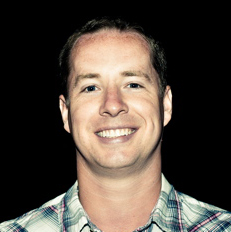
Marriage Prep Starts When You’re Single
Just before my wife and I got married, I read a great book by Archbishop Fulton Sheen about marriage. He claimed that one of the goals of marriage is that each spouse would gradually surrender their ego (sense of self-importance) as they strive to better love and serve each other. The idea sounded nice, but I figured that it wouldn’t really be an issue since I knew that my fiancé and I respected each other’s freedom.
All of my ideas and theories about personal space have flown out the window since entering into marriage and parenthood. Every decision I make affects someone else, because my life isn’t my own anymore. I am reminded of this daily by a two year old daughter who has no concept of things like personal space, vacation days, and “sleeping in.”
We know that vocations are personal and specific calls that God places on our hearts; they’re the paths that we take to get to heaven. To be Christian is to follow Christ, as He reminds us:
“Whoever wishes to come after me must deny himself, take up his cross, and follow me. For whoever wishes to save his life will lose it, but whoever loses his life for my sake will find it.” (Matthew 16: 24-25)
All of us, regardless of our vocations, are called to die to ourselves. In following Jesus, we must lay down our lives. The Catechism teaches us that chastity is essential if we are to faithfully and generously give of ourselves. Only the person who is chaste is able to offer their life as a gift, both body and soul (CCC 2337).
Here are 3 ways to grow in virtue, right now, to both prepare for your vocation and to be able to hear the Lord’s call in your life:
1. Prayer
I don’t just mean praying for something to happen in the future (whether it’s a prayer to meet someone or asking for a booming voice from Heaven to send detailed instructions for your future). Of course it’s good to present our needs and our desires to the Lord, but we need to spend time daily growing in relationship with Jesus. I can’t expect to hear a call if I’m not regularly spending time with the One who is calling me. Regardless of where God will lead you, the core of your vocation will always be your relationship with Him. The virtue of chastity grows when we remain aware of the Lord who freely and completely poured out His life for love of us.
2. Fasting
Every Lent, we are invited to fast, to sacrifice, and to embrace small sufferings to draw closer to Jesus. The more that we learn to say “no” to our desires, we gain self-mastery and we grow in our ability to say “yes” to authentic love. Whether you are called to marriage, priesthood, religious life, or a life set apart to serve others, fasting is a powerful tool to help eliminate selfishness and to grow in virtue. Even when we fall short in our attempts to fast, we can draw closer to the Lord as our need for His grace is made more evident. Lust entices us to pursue pleasure with urgency, but fasting teaches us that we don’t have to blindly follow our desires.
3. Getting Rid of Junk
I learned pretty quickly after getting married that I had a lot of excess in my life. It wasn’t just my stuff that was scattered all over the apartment, I also became more aware of my vices and sins as I saw how they directly affected my wife. We live in a culture that places a high priority on the accumulation of stuff. Every day we are promised that happiness awaits once we can get more, whether it’s money, material goods, popularity, or success. The message of the Gospel sharply contrasts this lie: Jesus promises that we will find abundant life when we are willing to surrender the things we hold dear. (Mark 10:17-22) Chastity requires freedom, and we can’t claim to be free if we’re clinging tightly to the possessions or selfish ambitions that have a hold on our hearts.
__________________________
 Brian Kissinger lives in Fairfax, Virginia, where he serves as a youth minister and high school Theology of the Body teacher. He has a passion for sharing the Gospel, and he emphasizes a message of hope in a culture that has lost its sense of purpose. Brian graduated from Franciscan University and completed his master’s degree in pastoral theology at the Augustine Institute. Brian married the girl of his dreams, Courtney, in 2012, and they are the proud parents of two children, Ellie and Brian 2.0.
Brian Kissinger lives in Fairfax, Virginia, where he serves as a youth minister and high school Theology of the Body teacher. He has a passion for sharing the Gospel, and he emphasizes a message of hope in a culture that has lost its sense of purpose. Brian graduated from Franciscan University and completed his master’s degree in pastoral theology at the Augustine Institute. Brian married the girl of his dreams, Courtney, in 2012, and they are the proud parents of two children, Ellie and Brian 2.0.
Photo: Tec Petaja